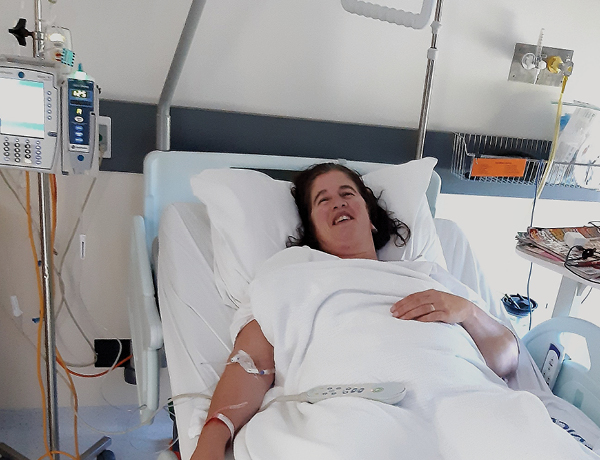Your support can help to fund research that will be life-changing for people with MS like Cheryl
Before her MS diagnosis, Cheryl loved playing sport. She found the most joy, fulfilment and purpose when she was playing hockey with her two teenage daughters.
As her MS symptoms worsened, she had to give it up, as she explains:
“I get a lot of muscle contractions and spasms down the right side of my body. I also get nerve pain and headaches and really bad fatigue after exercise. That made it impossible to keep playing hockey.
“In the end I was falling over all the time and everyone was worried I would hurt myself.”
It would mean the world to Cheryl if a cure could be found to restore the full and independent life she adored.

Your support today can help MS researchers unlock the secrets of MS that could get us closer to a cure.
Day by day, Cheryl and thousands of other Australians with MS are losing more independence and more moments with the people they love - moments they will never get back.
You can help change that.
Please give a gift today and help fund vital MS research that could be life-changing for people with MS like Cheryl.

Your gift can help support research like Associate Professor Brad Sutherland’s
Associate Professor Sutherland’s ambition is to uncover new information about cells on blood vessels at the blood-brain barrier, and how they may trigger the onset of MS. As he explains:
“Our blood vessels are like pipes that carry blood and nutrients to the brain. We need a constant flow through those pipes for healthy brain function.
“The pipes are held together and supported by a network of nuts and bolts (which are our cells). Sometimes, when those cells are faulty, they can cause leaks. Those leaks can allow harmful molecules to enter the brain and cause damage to important tissue.
“My research is focusing on these nuts and bolts of the pipe - cells found on capillaries called pericytes - to see if the structure and function of the blood vessels is impaired in MS, and whether this is a trigger for the disease.
Research like Associate Professor Sutherland’s has the potential to be life-changing.
“Understanding this information will allow us to identify one of the initial causes of MS. That is the foundation we need to learn how to prevent the disease, develop ways of improving treatment and achieve our ultimate goal of finding a cure and stopping MS altogether.”






